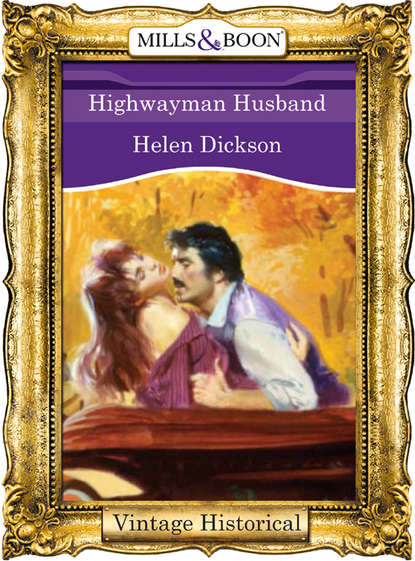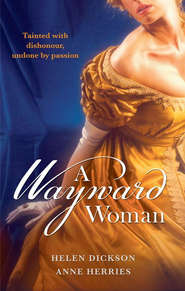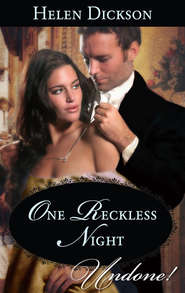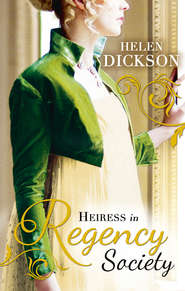По всем вопросам обращайтесь на: info@litportal.ru
(©) 2003-2024.
✖
Highwayman Husband
Настройки чтения
Размер шрифта
Высота строк
Поля
‘And mine,’ Laura reminded him coolly.
‘I confess that I was enjoying myself rather well until I heard it from your own lips that you were to be his wife. It rekindled my anger and roused all that is unpleasant in me.’
‘I noticed,’ Laura said. ‘Why didn’t you try and stop the celebrations?’
‘I did think about it, but I wasn’t ready to show myself—not to you, nor anybody.’
Laura was about to ask him what the secrecy was all about, but found herself saying instead, ‘You really don’t like Edward, do you, Lucas?’
‘Does one like a rattlesnake?’ he responded quickly. Placing the horrors Carlyle had inflicted on his own person aside, Lucas dwelt for a moment on what John told him when he had brought him up to date with all that had been happening in the district during his absence. It would seem that an underlying menace lurked among the huddle of cottages in Roslyn village and the surrounding hamlets, for the very name of Edward Carlyle engendered such fear that none dared interfere with his plans, challenge him or speak against him. To do so would have been to risk one’s life. Lucas’s hatred of Edward Carlyle was almost a physical pain within him, but when he answered Laura’s question he gave no sign of his true feelings.
‘There is a dark side to Carlyle someone as innocent as you cannot possibly begin to conceive. There is enmity between us, and it’s more than a matter of us not seeing eye to eye over a few difficult episodes in the past. I will not allow someone like him to ride roughshod over me. I have a score to settle with him—a heavy score and one I mean to make him pay in full…when the time is right,’ he said in a low voice. A ruthless gleam shone from his eyes. ‘Believe me, what you witnessed tonight was only a fraction of what I intend to do to that particular gentleman.’
There was a warning underlying the lightness of his words and Laura knew that he spoke in all seriousness.
‘But tell me,’ he went on, diverting the conversation away from his neighbour, ‘when you heard I had perished on the vessel bringing me back to England, Laura, why did you not return to London—to your father?’
Laura sighed, her mind going back to that time when she had found it hard to take in that the handsome man she had married was dead. ‘Because Roslyn was my home. I was Lady Mawgan and I had responsibilities. It was my duty to remain and take care of things. There was no one else, and the longer I stayed I found I was surrendering more and more of myself to the place. My brother, Philip, and his wife, Jane, bring the children down from London during the summer. The little ones do so love the cove. My—my father, who, as you will recall, suffered ill health, died shortly after we were married.’
Sympathy flickered in Lucas’s eyes. ‘I know. I’m sorry. I remember how close you were to him. You must have been devastated.’
‘Yes, I was.’ She glanced at him quizzically. ‘Who told you of his demise?’
‘I was in London for a time before I came to Cornwall. Your brother told me.’
‘I see. When I was told what had happened to you—that you were dead—I had to go to London to see your lawyers, so I stayed with my father. Before he died he told me something, Lucas, and I would like you to tell me if it’s true. You see, I never did know why you had to go to France so soon after we were married, and I would like it if you explained to me where you have been and what you have been doing all this time.
‘My father told me you were working for the government—that the foreign secretary had sent you to France on a secret mission. Is that true?’ Lucas’s eyes snapped to her face and a sudden wariness ignited in his eyes. Her question had taken him completely unawares, she could see that, and she existed in a state of jarring tension for his reply. When it came his voice was guarded, only telling her enough to pacify her curiosity.
‘My business was—highly confidential.’
‘But you were on government business?’ she persisted, watching him closely.
‘With France in turmoil at the time and the situation deteriorating daily, His Majesty’s government was eager to see how the French would resolve the situation, since it would affect the rest of Europe. Absolute monarchs everywhere recognised that the doctrines of the revolution in France endangered their own regimes.
‘Already the Declaration of the Rights of Man and Citizen issued by the French Assembly in August ’89 was spreading its message, with unrest and demands for reform by the bourgeoisie and peasants appearing in countries all over Europe, and French émigrés pressing unceasingly for war against the revolution. Reluctant to start such a conflict, the foreign secretary, feeling that some special purpose might be gained, sent me to Paris to act as a detached observer.’
‘A spy, you mean.’
His expression was grave but calm. ‘I prefer to call myself a government agent.’
‘Is there a difference?’
‘No. I was not the only one employed as such. God alone knows how many foreign spies were loose in France at that time—and now, for that matter.’
‘And—were you carrying any despatches?’
‘No,’ Lucas went on, feeling duty bound to answer her questions, but careful not to reveal too much. ‘It would have been too dangerous—should they fall into the wrong hands. I carried nothing with me except false credentials.’
‘And what happened to you when the vessel bringing you back from France sank? I was informed that only one man survived and that he managed to make it back to England. According to him, the Pelican was attacked by some unknown force and everyone on board killed and thrown into the sea.’
‘That is more or less what happened. Who that man was I really cannot say, and how he made it back to England is a mystery to me. With so much traffic passing back and forth in the Channel it is likely that he was picked up by a vessel. But, contrary to the account he gave to the Admiralty, he was not the only one to survive. Along with one other I was pulled from the sea by the captain of a French vessel on patrol. Unfortunately, having received a severe blow to the head, I was unconscious at the time. When the captain demanded to know our names, the other man—a mariner from Roslyn village who died soon afterwards—knowing nothing of my mission, gave the captain my true identity.
‘Unfortunately it was not unknown to the French, since my coming and going between our countries engaged on secret missions during the American war had been greeted with suspicion and made me most unpopular at the time. I was taken back to Paris, where I was pronounced a traitor, and without a trial I was thrown into prison—La Force, a notoriously vile, appallingly overcrowded place, a common jail, where criminals of every kind who roam the slums of Paris and elsewhere are incarcerated.’
Laura was horrified. ‘But—how could they imprison you, an Englishman?’
‘My mother was French,’ he told her. His voice was grim. ‘They knew this. She was a member of the detested aristocracy, from the Languedoc region—the same aristocracy the people are feeding to the guillotine every day.’
‘Oh!’ Laura exclaimed, expressing her surprise. ‘I didn’t know.’
‘No,’ he said quietly, his eyes calmly watching her. ‘There is a lot we don’t know about each other, Laura.’
‘We—we hear such dreadful things about what is happening in France…with so much internal unrest,’ she faltered, unable to stem the warmth his disturbing gaze sent pulsating through her veins. ‘Did—did they interrogate you?’
‘I was—subjected to questioning,’ he told her hesitantly, sparing her the gruesome details of how he had been shackled with a length of heavy chain hand and foot, tortured at the hands of experts, before being dumped unceremoniously into an underground hell-hole, a pathetic, clanking heap of misery. This was not for the ears of a respectable young woman.
‘But I gave no account. In the beginning I was kept in complete isolation—unable to make contact with the outside world—in a place where a man loses count of the days and where death can strike in many ways. I had plenty of time to think, but I tried not to. When a man loses his freedom, thinking is a dangerous business—apt to drive him mad. Eventually I was taken out and put in a cell with two other prisoners.’
Pain and disbelief streaked through Laura at the thought of Lucas languishing in one of France’s prisons. If only she had known, she would have moved heaven and earth to rescue him.
‘How I wish I’d known…’ A knot formed at the base of her throat, shutting off her words, and, leaning forward, Lucas saw tears in her eyes.
‘You weep for me?’ he murmured, deeply touched. ‘How strange!’
‘Strange?’ she asked, finding her voice once more. ‘Is it strange for a woman to weep when her husband tells her what you have just told me—of the tragedy that befell you, of the pain and indignities you must have been subjected to at the hands of those…those foreigners, knowing you could emerge at any time and be taken to the guillotine in one of those creaking carts of death?’ She dropped her gaze and looked down at her hands. ‘I’m sorry. You must think I’m very silly.’
Lucas’s face seemed transfigured and he was looking at his wife as if he could not gaze too long. Quietly he said, ‘I happen to think you’re very sweet.’
Raising her eyes, she looked across at him. She felt a sudden quiver run through her, a sudden quickening within, as if something came to life. Something was happening to her, something golden and wonderful, and when she spoke she could only stammer, ‘H-how did you manage to get out of the prison? Did you escape?’
‘No. I was released when war broke out with the Prussians. When thousands of patriotic volunteers went to defend the revolution their departure from Paris provoked concern about the prisons, which were crowded with counter-revolutionaries who might threaten a city deprived of so many of its defenders. Already there was a rumour spreading that they were plotting their escape and would avenge themselves on the remaining defenders and hand Paris over to the Prussians.
‘Marat, a powerful member of the commune, declared that the enemy within must be destroyed before the invader could be repulsed. He called for the conspirators to be put to death. Armed bands began visiting the prisons, and the advance of the enemy gave an excuse for the mob to vent its hatred in an orgy of bloodshed.
‘There was absolute mayhem as improvised courts were set up to try prisoners. Hundreds of counter-revolutionaries were killed—and a large number were released. Miraculously I was one of them. I didn’t hang around to find out why. I immediately left Paris and headed for the coast, where I managed to find a boat to take me across the Channel.’
Laura was not ignorant of what had been happening in Paris. Since these ‘September massacres’ which Lucas spoke of, the French troops had halted the enemy advance. On September 21st the convention had abolished the monarchy, and the next day it proclaimed the republic. She had listened to Lucas calmly, deeply moved by everything he had told her, but she had the distinct feeling that there was a great deal more he had left unsaid.
‘We will speak no more of this now,’ Lucas said, ‘and not a word of it to anyone.’
‘You can rely on me not to breathe a word. I promise.’
Lucas’s eyes warmed. ‘I know. Despite betrothing yourself to Carlyle, the way you have behaved during my absence proves to me that you are a person one can depend on in a crisis.’
He watched the youthful, graceful line of her neck at the back of which her hair nestled, soft and shining. He saw the sensitiveness of her small hands folded in her lap, and the dark sweep of her long, curling eyelashes against her flushed cheeks, and wondered why he hadn’t noticed before. ‘You have spirit and courage, Laura. I commend that. In fact you are a complete contradiction in terms and appearance.’
‘A contradiction?’ she queried, looking slightly bewildered.












